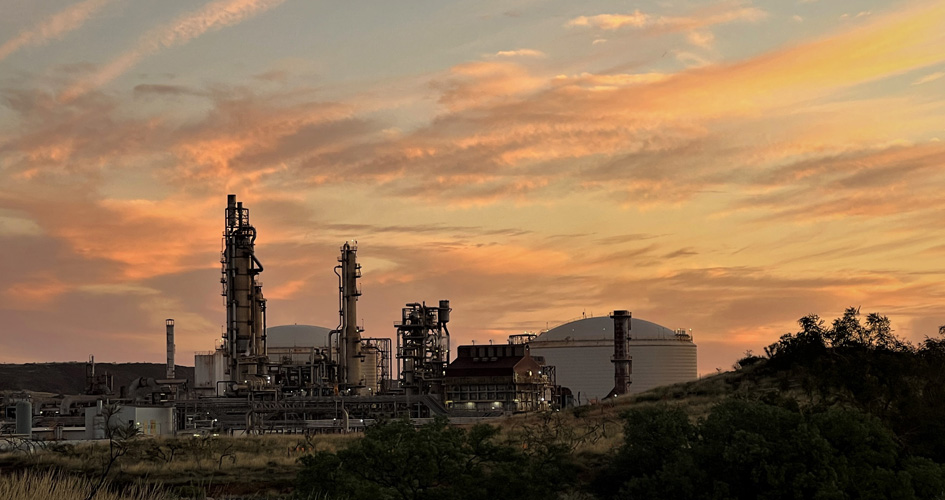Posco and Engie have announced they will conduct a pre-feasibility study for a major renewable hydrogen project, including utility scale wind and solar generation, to be developed near Port Hedland in Western Australia’s Pilbara.
The two parties said the study will determine the feasibility of using renewable hydrogen to fuel Posco’s proposed hot briquetted iron plant that would provide feedstock for the company’s South Korean steel-making operations.
While no details about the capacity of the green hydrogen project were made public, the state government said the study will support development plans for inland renewable energy sites, including wind and solar generation, a hydrogen electrolyser, large-scale storage capability and a pipeline capable of transporting green hydrogen to South Korea to decarbonise Posco’s assets.
The study is expected to be completed in early 2024.
The proposed project is the second large-scale green hydrogen venture Engie is pursuing in the Pilbara, having commenced construction of a facility that will provide feedstock into Yara Pilbara Fertilisers’ existing ammonia operations near Karratha.
The Yuri project will include a 10 MW electrolyser and 18 MW of solar coupled with an 8 MW/5 MWh lithium-ion battery energy storage system for firming. The project is scheduled for completion in 2024.
The new project is a continuation of Engie’s alliance with Posco which began with the signing of a memorandum of understanding in 2022, when the two companies agreed to explore joint development opportunities for green hydrogen production and related infrastructure in Australia, the Middle East and Latin America.
The agreement feeds into Engie’s aim of generating 80 GW of renewable capacity and 4 GW of electrolyser capacity by 2030, and Posco’s ambition for a green hydrogen-based steel business by 2050.
Posco senior Executive Vice President Byeong-Og Yoo said at the time that steel manufacturing is undergoing significant transformation as governments and businesses increasingly embrace the shift toward carbon neutrality.
“At Posco, we intend to establish a hydrogen production capacity of seven million tonnes by 2050 to become a top 10 producer globally in support of the transition to green steel making,” he said.
The first of the projects being pursued under the agreement was announced earlier this year with Engie and Posco heading a consortium that will develop a green hydrogen and green ammonia project in Oman.
The project will include up to approximately 5 GW of new wind and solar capacity, battery energy storage and a renewable hydrogen plant with a capacity of up to 200 ktpa. The hydrogen will be used to produce about 1.2 million tonnes of green ammonia per year that will be exported to South Korea.
This content is protected by copyright and may not be reused. If you want to cooperate with us and would like to reuse some of our content, please contact: editors@pv-magazine.com.









By submitting this form you agree to pv magazine using your data for the purposes of publishing your comment.
Your personal data will only be disclosed or otherwise transmitted to third parties for the purposes of spam filtering or if this is necessary for technical maintenance of the website. Any other transfer to third parties will not take place unless this is justified on the basis of applicable data protection regulations or if pv magazine is legally obliged to do so.
You may revoke this consent at any time with effect for the future, in which case your personal data will be deleted immediately. Otherwise, your data will be deleted if pv magazine has processed your request or the purpose of data storage is fulfilled.
Further information on data privacy can be found in our Data Protection Policy.